MercoPress. South Atlantic News Agency
Agriculture
-
Monday, June 9th 2025 - 20:18 UTC
FAO Food Price Index dips in May amid lower cereal, sugar and vegetable oil prices
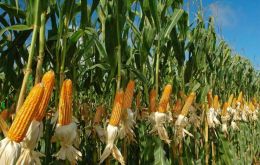
The benchmark of world food commodity prices dropped in May as marked declines in international quotations for maize and palm oil outweighed historically high prices for butter and bovine meat, the Food and Agriculture Organization of the United Nations (FAO) reported.
-
Saturday, June 7th 2025 - 10:21 UTC
Will Uruguay train Palestinians in sustainable agriculture?

from the West Bank in sustainable agriculture, Foreign Minister Mario Lubetkin announced in Montevideo Friday.
-
Wednesday, June 4th 2025 - 10:25 UTC
Significant growth in Paraguayan exports reported

Paraguayan exports have recorded significant improvements this year, according to reports released in Asunción this week.
-
Tuesday, June 3rd 2025 - 17:40 UTC
Electronic ID for Cattle mandatory in step forward for UK biosecurity
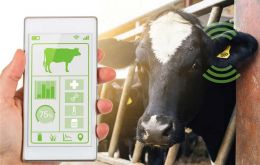
Cattle identification and traceability in England will change over the next 2 years, in a major step forward in disease control and trade across the farming sector, Defra has announced Monday 2 June.
-
Tuesday, June 3rd 2025 - 17:24 UTC
UK international risk status for BSE downgraded to “negligible”

The UK’s risk rating status for Bovine Spongiform Encephalopathy (BSE) has been downgraded to negligible by the World Organization for Animal Health (WOAH). DEFRA said it is a major boost for the food and farm sector, more avenues will now be open for trade with other countries as our improved risk status for beef and bovine products is recognized.
-
Monday, June 2nd 2025 - 08:54 UTC
Uruguayan authorities warn of dangers of avian influenza

Uruguay's Public Health Ministry (MSP) issued Sunday a series of recommendations to keep avian influenza from spreading to humans.
-
Monday, June 2nd 2025 - 08:41 UTC
Singapore is the door to other Southeast Asian markets for Paraguayan meat
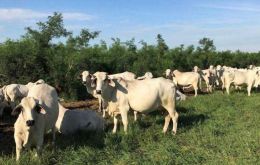
Asunción meat industry leaders view Singapore as a strategic gateway to Southeast Asia, with hopes of expanding into markets like the Philippines, Korea, and Japan, Paraguayan Meat Chamber (CPC) General Manager Daniel Burt told ABC Color in an interview published Sunday. The opening of that market represents an endorsement of Paraguay's sanitary standards and meat quality.
-
Friday, May 30th 2025 - 10:30 UTC
Brazil recognized once again as free of FMD without vaccination
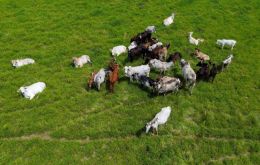
Brazil has officially been recognized by the World Organization for Animal Health for the second straight year as free of foot-and-mouth disease without vaccination. The acknowledgment, granted during the organization’s 92nd General Session in Paris, reinforces Brazil’s commitment to livestock health and global trade.
-
Thursday, May 29th 2025 - 10:23 UTC
Brazil: Bird flu case detected in wild animals
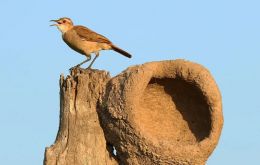
A new outbreak of highly pathogenic avian influenza (H5N1) in wild birds in Montenegro, in the Brazilian State of Rio Grande do Sul, specifically affecting the species joão-de-barro (Furnarius rufus) was confirmed Wednesday, while a suspected case in a commercial poultry slaughterhouse in Tocantins was ruled out.
-
Thursday, May 29th 2025 - 10:15 UTC
Uruguay clinches rapeseed and soybean meal deal with China

Uruguay and China signed a historic agreement enabling the South American country to export rapeseed and soybean meal. The phytosanitary protocol ensures safety, inspection, and traceability standards for these high-protein products, which are much in demand for animal feed in Asia.